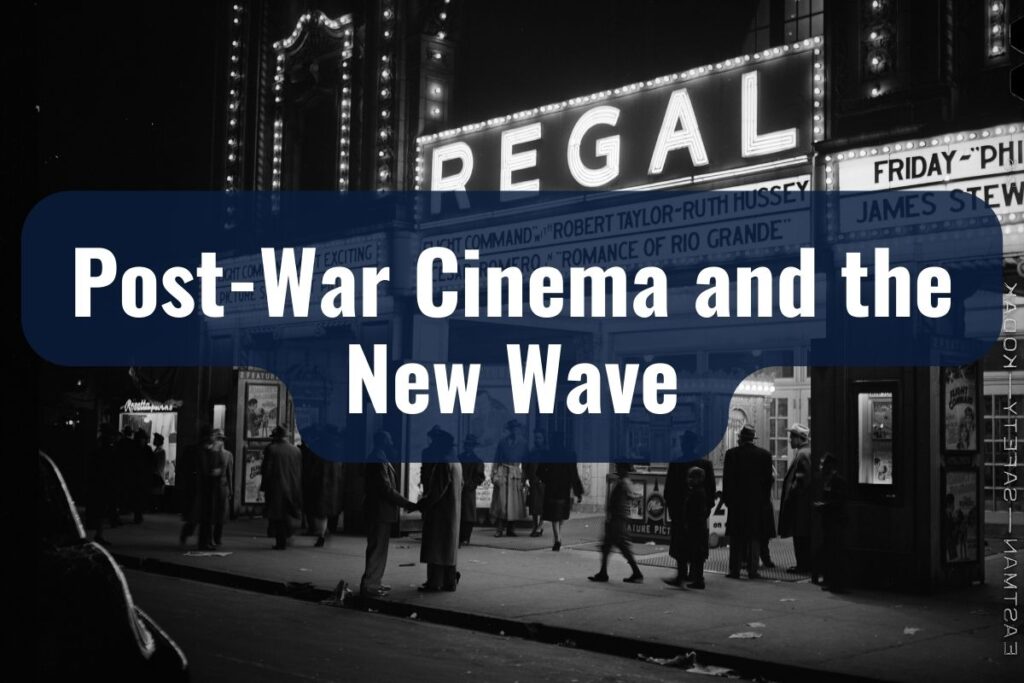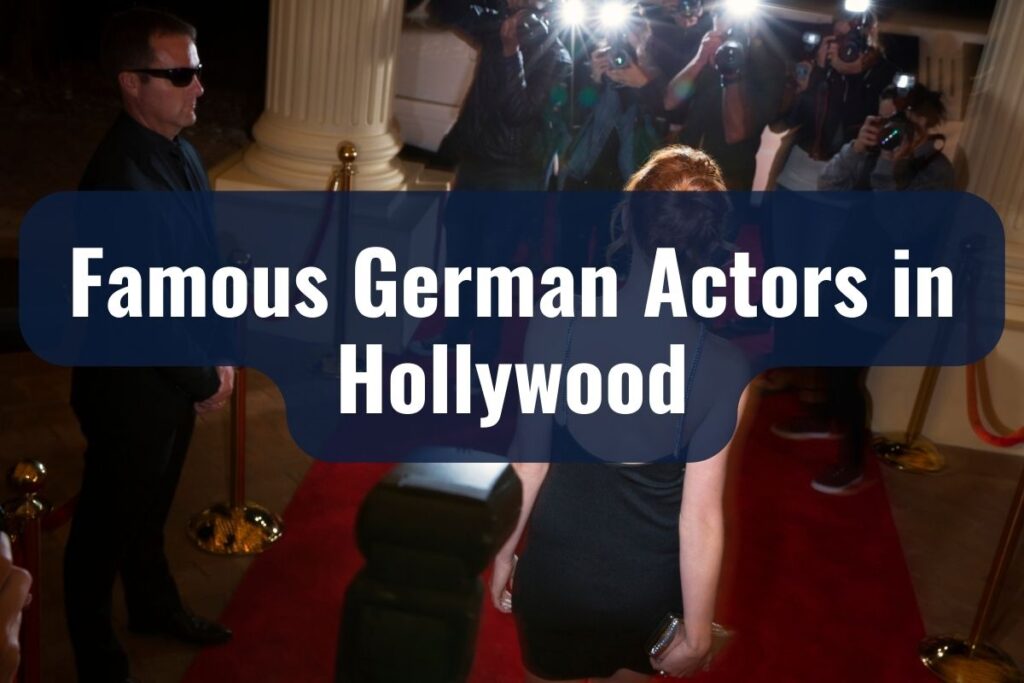With its profound history and diverse storytelling, German cinema has long been a cornerstone of the international film community. From the silent film era to contemporary blockbusters, famous German actors have played an instrumental role in shaping the narrative and aesthetic of movies globally. This journey through German cinematic history is not just about film’s evolution but also reflects the country’s cultural and political shifts.
As we delve into German cinema, it’s impossible to overlook the contribution of its actors. These artists have brought life to unique characters and served as cultural ambassadors, introducing audiences worldwide to the nuances of German life and history. Their performances, transcending language barriers, continue to resonate with a wide range of audiences, including movie buffs, fans of German cinema, and cultural enthusiasts seeking a deeper understanding of this rich film heritage.
KEY TAKEAWAYS
- Early German actors like Max Schreck, Marlene Dietrich, and Emil Jannings shaped the art of cinema with iconic performances.
- Post-WWII German cinema saw a shift towards realism, and the German New Wave ushered in an era of innovation and social commentary.
- Daniel Brühl and Diane Kruger exemplify the versatility and global appeal of modern German actors, enriching both German and international cinema.
- German actors like Christoph Waltz, Franka Potente, and Til Schweiger have successfully transitioned to Hollywood, contributing to its diversity and excellence.
- Bruno Ganz and Martina Gedeck delivered captivating performances that not only won awards but also offered insights into German history and culture.
- German actors have earned recognition at prestigious awards like the Oscars and European Film Awards, showcasing the global impact of their talent.
The Pioneers of German Cinema
Early Titans of the Silver Screen
In the annals of film history, German cinema’s early days are marked by innovation and artistic audacity, spearheaded by actors whose work laid the foundation for what would become a globally respected industry. These pioneers, working in the early 20th century, were not just actors; they were storytellers who helped shape the visual language of cinema.
Max Schreck: A Figure of Gothic Horror
One cannot discuss the pioneers of German cinema without mentioning Max Schreck, whose portrayal of Count Orlok in F.W. Murnau’s 1922 film “Nosferatu” remains a landmark in horror cinema. Schreck’s haunting performance, characterized by his eerie physicality and expressionistic acting style, established a template for on-screen horror that resonates to this day.
Marlene Dietrich: The Timeless Icon
Marlene Dietrich, another towering figure, began her illustrious career in Germany before becoming a global icon. Her performance in “The Blue Angel” (1930), directed by Josef von Sternberg, showcased her enigmatic presence and unique ability to blend sensuality with an air of mystery. Dietrich’s transition to Hollywood would later make her one of the first German actors to achieve international stardom.
Emil Jannings: The Master of Emotional Depth
Emil Jannings, known for his intense and deeply emotional performances, was another key figure in early German cinema. His work in films like “The Last Laugh” (1924) and “Faust” (1926) exemplified the powerful emotive capabilities of silent film acting, earning him accolades including the very first Academy Award for Best Actor.
The Artistic Flourish of German Expressionism
This era was also defined by German Expressionism, a movement that revolutionized film aesthetics. Actors in these films often portrayed intense psychological states through exaggerated gestures and expressions, contributing to the creation of an unsettling and dreamlike atmosphere. This style would profoundly influence German cinema and the wider world of film, shaping genres from film noir to contemporary thrillers.
Conrad Veidt: The Expressionist Icon
Conrad Veidt, famous for his roles in “The Cabinet of Dr. Caligari” (1920) and “Waxworks” (1924), was a master of this style. His ability to convey complex emotions through physicality and facial expressions was unparalleled, making him a standout figure in German expressionist cinema.
Setting the Stage for Future Generations
These early actors were more than just performers; they were integral to the artistic innovations of their time. Their legacies continue to inspire and influence actors and filmmakers, proving that the roots of German cinema are as deep as they are illustrious. As we move forward in our exploration, the pioneering spirit of these early actors serves as a guiding light, illuminating the path of German cinema through the ages.
Post-War Cinema and the New Wave

Rebirth of German Cinema in the Post-War Era
In the aftermath of World War II, German cinema underwent a significant transformation, marked by a shift towards more realistic and socially conscious storytelling. This period was a time of introspection and redefinition, as filmmakers and actors grappled with the nation’s recent past and sought to carve out a new identity for German film.
The Emergence of New Realism
The post-war era saw the emergence of a more somber and realistic approach to filmmaking. Actors of this period played a crucial role in portraying the raw, unvarnished realities of a country rebuilding itself. Their performances often reflected the collective psyche of a nation in recovery, dealing with the aftermath of war and the complexities of reconstruction.
The German New Wave: A Cinematic Revolution
The 1960s and 1970s heralded the arrival of the German New Wave (Neuer Deutscher Film), a movement that sought to break away from conventional filmmaking and traditional narratives. This period was characterized by innovative storytelling, experimental techniques, and a focus on personal and political themes.
Rainer Werner Fassbinder: A Vanguard of New Wave
One of the most influential figures of this era was Rainer Werner Fassbinder. Though primarily known as a director, his acting contributions were significant, bringing an intense and visceral energy to his roles. Fassbinder’s work epitomized the New Wave’s spirit, combining artistic boldness with a deep exploration of social issues.
Hanna Schygulla: The New Wave Muse
Actress Hanna Schygulla became synonymous with the New Wave, frequently collaborating with Fassbinder. Her performances, known for their emotional depth and complexity, captured the essence of the era’s cinematic ethos. Films like “The Marriage of Maria Braun” (1979) showcased her talent for portraying strong, multifaceted women, making her a prominent figure in German cinema.
The Impact on International Cinema
The German New Wave had a profound impact beyond Germany’s borders, influencing filmmakers around the world. The actors of this era were instrumental in this cultural exchange, their performances resonating with international audiences and critics alike. They not only represented a new face of German cinema but also contributed to a global dialogue about film as an art form.
The Legacy Continues
As we reflect on the post-war period and the New Wave, it’s clear that this was a time of great upheaval and creativity in German cinema. The actors of this era did not just appear in films; they were active participants in a cultural renaissance, helping to redefine what German film could be. Their legacy is a testament to the power of cinema to reflect, challenge, and transform society.
Contemporary German Actors Making Waves
A New Era of German Talent
In recent years, German cinema has continued to evolve, producing a new generation of actors who are making significant impacts both at home and on the international stage. These contemporary artists are known for their versatility, depth, and the ability to seamlessly transition between different film industries, languages, and genres.
Daniel Brühl: A Global Star with German Roots
Daniel Brühl has emerged as one of the most recognizable faces in German cinema, known for his compelling performances and international appeal. His breakthrough role in “Good Bye Lenin!” (2003) showcased his ability to blend humor with emotional depth. Brühl’s successful foray into Hollywood, with films like “Rush” (2013) and “Captain America: Civil War” (2016), has made him a household name globally, while still maintaining strong ties to German cinema.
Diane Kruger: From German Cinema to International Acclaim
Diane Kruger‘s journey from German television and film to international stardom epitomizes the global reach of contemporary German actors. Her performances in Hollywood productions like “Troy” (2004) and “Inglourious Basterds” (2009), along with her work in European cinema, demonstrate her range and adaptability. Kruger continues to be a prominent figure in both German and international film industries.
The Diverse Range of Contemporary German Cinema
The current landscape of German cinema is rich and varied, with actors contributing to a wide array of genres and styles. From independent films to major international productions, these actors are at the forefront of cinematic innovation and storytelling.
Moritz Bleibtreu: The Versatile Performer
Moritz Bleibtreu is another actor who has left a significant mark on both German and international cinema. Known for his roles in films like “Run Lola Run” (1998) and “The Baader Meinhof Complex” (2008), Bleibtreu’s dynamic range and intensity make him one of Germany’s most compelling actors.
Nina Hoss: The Powerhouse of Talent
Nina Hoss has established herself as one of the most powerful performers in German cinema. Her collaborations with director Christian Petzold, particularly in films like “Barbara” (2012) and “Phoenix” (2014), have garnered critical acclaim for their nuanced and evocative portrayals. Hoss’s ability to convey complex emotions with subtlety and depth cements her status as a key figure in contemporary German film.
Breaking Barriers and Crossing Boundaries
These actors represent a new wave of German talent that is not confined by national borders or language barriers. They bring a unique blend of skill, sensitivity, and cultural perspective to their roles, enriching the global film landscape. As ambassadors of German cinema, they continue to break new ground, exploring diverse themes and narratives, and captivating audiences worldwide with their compelling performances.
Famous German Actors in Hollywood

Bridging Cinematic Worlds
The allure of Hollywood has always been magnetic, and German actors have been no exception in being drawn to its bright lights and big stages. Over the years, a number of German actors have made significant strides in Hollywood, showcasing their versatility and bringing a unique touch to the global film industry. Their success in crossing over from German cinema to Hollywood not only highlights their individual talents but also underscores the universal appeal of German artistry.
Christoph Waltz: A Masterclass in Acting
Perhaps no other German-speaking actor in recent times has made as big a splash in Hollywood as Christoph Waltz. With his Academy Award-winning performances in Quentin Tarantino’s “Inglourious Basterds” (2009) and “Django Unchained” (2012), Waltz has become synonymous with captivating, nuanced portrayals. His ability to effortlessly switch between charming and menacing has made him a favorite among both audiences and critics alike.
Franka Potente: From “Run Lola Run” to Hollywood
Franka Potente, who first gained international recognition in “Run Lola Run” (1998), successfully transitioned to Hollywood with significant roles in films like “The Bourne Identity” (2002). Her strong screen presence and adaptability have allowed her to carve out a unique niche in the American film industry.
The Versatility of German Talent in Hollywood
The journey of German actors in Hollywood is marked by a wide range of roles and genres. These actors have not been typecast; instead, they have taken on diverse characters and stories, which speaks to their range and the respect they command in the industry.
Til Schweiger: A Multifaceted Presence
Til Schweiger is another notable name who has managed to make a mark in both German and American cinemas. Known for his work in action films and romantic comedies in Germany, Schweiger brought his charisma to Hollywood in films like “Inglourious Basterds” and “The Replacement Killers” (1998), showcasing his versatility.
Impact Beyond Acting: Directors and Producers
The influence of German talent in Hollywood extends beyond acting. Several German actors have also made their mark as directors and producers, contributing to the creative and commercial aspects of filmmaking. This dual role further emphasizes the depth of talent and vision that German artists bring to the global film industry.
A Symbol of Cultural Exchange
The success of German actors in Hollywood is more than just a testament to their individual skills; it represents a rich cultural exchange. These actors bring a distinct sensibility and perspective to their roles, enriching the tapestry of American cinema. Their achievements pave the way for future collaborations between German and Hollywood film industries, highlighting the universal language of cinema and its power to transcend borders.
Celebrated Performances in German Language Films
Showcasing Excellence in Native Cinema
While German actors have made significant impacts in international cinema, their performances in German-language films remain pivotal in showcasing the depth and versatility of their talent. These celebrated roles not only highlight their acting prowess but also underline the richness of German cinema. The following performances have not only won acclaim but also left an indelible mark on the hearts and minds of viewers.
Bruno Ganz in “Der Himmel über Berlin” (Wings of Desire)
Bruno Ganz‘s portrayal in Wim Wenders’ “Der Himmel über Berlin” (1987), internationally known as “Wings of Desire,” stands out as a testament to his exceptional talent. As an angel who experiences the human world, Ganz brought a profound sense of empathy and introspection to his role. His performance is a beautiful blend of subtlety and depth, capturing the nuances of longing and the human condition.
Martina Gedeck in “Das Leben der Anderen” (The Lives of Others)
Martina Gedeck‘s compelling performance in “Das Leben der Anderen” (2006), a film that explores the monitoring of East Berlin residents by agents of the Stasi, the GDR’s secret police, is noteworthy. Her portrayal of a conflicted artist living under surveillance is both powerful and poignant, offering a window into the complexities of life in East Germany.
A Mirror to German Society and History
Many of these celebrated films and performances reflect key aspects of German history, society, and culture, providing viewers with a deeper understanding of the nation’s past and present.
Ulrich Mühe in “Das Leben der Anderen” (The Lives of Others)
Ulrich Mühe‘s performance in “Das Leben der Anderen” is another remarkable feat. As a Stasi officer torn between duty and morality, Mühe delivered a nuanced and haunting portrayal that earned him international acclaim. His role is a poignant reminder of the human side of history and the moral dilemmas faced by individuals in oppressive regimes.
Genre-Defining Performances
German actors have also been pivotal in defining and elevating various film genres through their performances in German-language films.
Moritz Bleibtreu in “Lola rennt” (Run Lola Run)
In “Lola rennt” (1998), Moritz Bleibtreu‘s dynamic performance contributed significantly to the film’s success. His role in this fast-paced thriller not only showcased his versatility as an actor but also helped cement the film’s status as a cult classic in the genre.
The Power of Storytelling in German Cinema
These performances are more than just acts; they are powerful narratives that speak to the human experience. German actors, through their work in native language films, have succeeded in transcending linguistic barriers, connecting with audiences worldwide through the universal language of emotions and storytelling.
Award-Winning Talent

German Actors on the Global Stage
German cinema has not only been a platform for profound storytelling and artistic expression but has also been recognized on the global stage through numerous awards and accolades. These recognitions not only celebrate the individual talents of German actors but also underscore the global impact and quality of German film.
Oscars and International Recognition
German actors have made their mark in some of the most prestigious international award ceremonies, including the Academy Awards. Their achievements in these arenas highlight the caliber of talent emerging from Germany and its resonance with a worldwide audience.
Christoph Waltz’s Oscar Triumphs
Christoph Waltz’s wins at the Academy Awards for his roles in “Inglourious Basterds” and “Django Unchained” are prime examples of German talent receiving international acclaim. His performances, marked by their intricacy and charisma, captivated audiences and critics alike, showcasing the depth and versatility of German acting.
European Film Awards and Beyond
The European Film Awards have also been a significant platform for recognizing the talent of German actors. These awards, focusing on the richness of European cinema, have frequently celebrated German contributions, further solidifying the nation’s position in the cinematic landscape of Europe.
Diane Kruger’s Cannes Film Festival Acknowledgment
Diane Kruger’s Best Actress win at the Cannes Film Festival for her role in “Aus dem Nichts” (“In the Fade”) (2017) is another notable achievement. Her gripping portrayal in this drama showcased her emotional range and cemented her status as a formidable talent in international cinema.
Celebrating Diverse Talent
The array of awards won by German actors reflects not just their individual excellence but also the diverse nature of German cinema. From intense dramas to groundbreaking comedies, German actors have demonstrated their prowess across a spectrum of genres and styles.
A Testament to German Artistry
These accolades serve as a testament to the enduring artistry and impact of German actors on the world stage. Their contributions to cinema are not just limited to their performances but also include their ability to convey complex narratives and emotions, transcending cultural and linguistic barriers.
Inspiring Future Generations
The success and recognition of German actors in international award circuits are not only a source of national pride but also an inspiration for upcoming talents in the German film industry. They set a benchmark of excellence, encouraging aspiring actors to hone their craft and pursue their artistic visions.
The Impact of German Actors on Global Cinema
A Global Legacy of Excellence
German actors have left an indelible mark on global cinema, their contributions extending far beyond the borders of their home country. Their influence is felt in various aspects of the film industry, from acting techniques to storytelling styles, and their presence has enriched the global cinematic landscape in numerous ways.
Shaping Acting Techniques
German actors have played a significant role in shaping the evolution of acting techniques and styles. From the expressionism of the early 20th century to the naturalism of contemporary cinema, German actors have been at the forefront of innovative approaches to performance. Their ability to convey complex emotions with subtlety and authenticity has set a high standard for actors around the world.
Fostering Cultural Exchange
The work of German actors has fostered cultural exchange and understanding. Through their performances, they have introduced international audiences to German culture, history, and societal issues. This exchange has deepened the appreciation of German cinema and has contributed to cross-cultural dialogue and empathy.
Inspiring Filmmakers and Actors
German actors have served as a source of inspiration for filmmakers and actors worldwide. Their commitment to their craft, dedication to their characters, and ability to bring authenticity to their roles have set a benchmark for excellence. Aspiring actors and directors often look to German cinema for inspiration and guidance.
Expanding Horizons
The success of German actors in international films has expanded the horizons of German cinema. Their participation in Hollywood productions and collaborations with filmmakers from different countries have brought fresh perspectives and storytelling techniques to the German film industry. This cross-pollination of ideas has enriched the nation’s cinematic output.
A Cultural Bridge
German actors have acted as cultural bridges, connecting audiences across the world through the universal language of cinema. Their performances have transcended linguistic and cultural barriers, resonating with viewers from diverse backgrounds. Through their work, German actors have promoted cross-cultural understanding and empathy.
The Enduring Legacy
As we celebrate the impact of German actors on global cinema, we acknowledge that their legacy is an ongoing one. The current generation of German actors, as well as those who will follow, will continue to carry the torch of excellence and cultural exchange in the world of film. Their contributions will shape the future of cinema and ensure that German actors remain an integral part of the global cinematic tapestry.
Exploring the Diverse Genres of German Actors

Versatility Beyond Boundaries
German actors have demonstrated remarkable versatility in their careers, excelling in a wide range of film genres. From heart-wrenching dramas to side-splitting comedies, these performers have showcased their ability to adapt to diverse roles and captivate audiences across various cinematic landscapes.
Drama: Delving into Human Complexity
German actors have a penchant for delving deep into the intricacies of human emotions and relationships, making them masters of dramatic storytelling. Their performances in gripping dramas have often left audiences in awe of their ability to convey profound emotions.
Nina Hoss in “Barbara” (2012)
Nina Hoss’s portrayal of the titular character in “Barbara” is a testament to her dramatic prowess. Her nuanced performance as a doctor in East Germany facing moral dilemmas and personal challenges is a poignant exploration of the human condition.
Comedy: Crafting Laughter and Entertainment
German actors have also made their mark in the world of comedy, bringing humor and laughter to the screen. Their impeccable timing and comedic skills have added a unique flavor to the genre.
Til Schweiger in “Keinohrhasen” (Rabbit Without Ears) (2007)
Til Schweiger’s charismatic performance in “Keinohrhasen” not only showcased his comedic talents but also highlighted his ability to engage and entertain audiences. The film’s blend of humor and heartwarming moments made it a beloved comedy in Germany.
Thrillers demand suspense, tension, and a captivating presence, and German actors have risen to the occasion. Their performances in gripping thrillers have kept viewers on the edge of their seats.
Moritz Bleibtreu in “Das Experiment” (The Experiment) (2001)
Moritz Bleibtreu’s portrayal in “Das Experiment,” a psychological thriller, is a testament to his ability to navigate intense and suspenseful narratives. His performance as a participant in a simulated prison experiment is riveting and adds depth to the film’s exploration of human behavior.
Fantasy and Sci-Fi: Imagining New Realities
German actors have also ventured into the realms of fantasy and science fiction, bringing imaginative and otherworldly stories to life. Their performances in these genres have demonstrated their adaptability and willingness to embrace unconventional narratives.
David Bennent in “Die unendliche Geschichte” (The NeverEnding Story) (1984)
David Bennent’s role as Atreyu in “Die unendliche Geschichte” is a classic example of a German actor’s contribution to the fantasy genre. His performance in this beloved film transported audiences to a fantastical world and made a lasting impact on viewers of all ages.
The Multifaceted Talents
The ability of German actors to excel in diverse genres is a testament to their multifaceted talents and dedication to their craft. Their willingness to explore different styles of storytelling enriches the cinematic landscape and ensures that there is always something new and exciting for audiences to discover.


